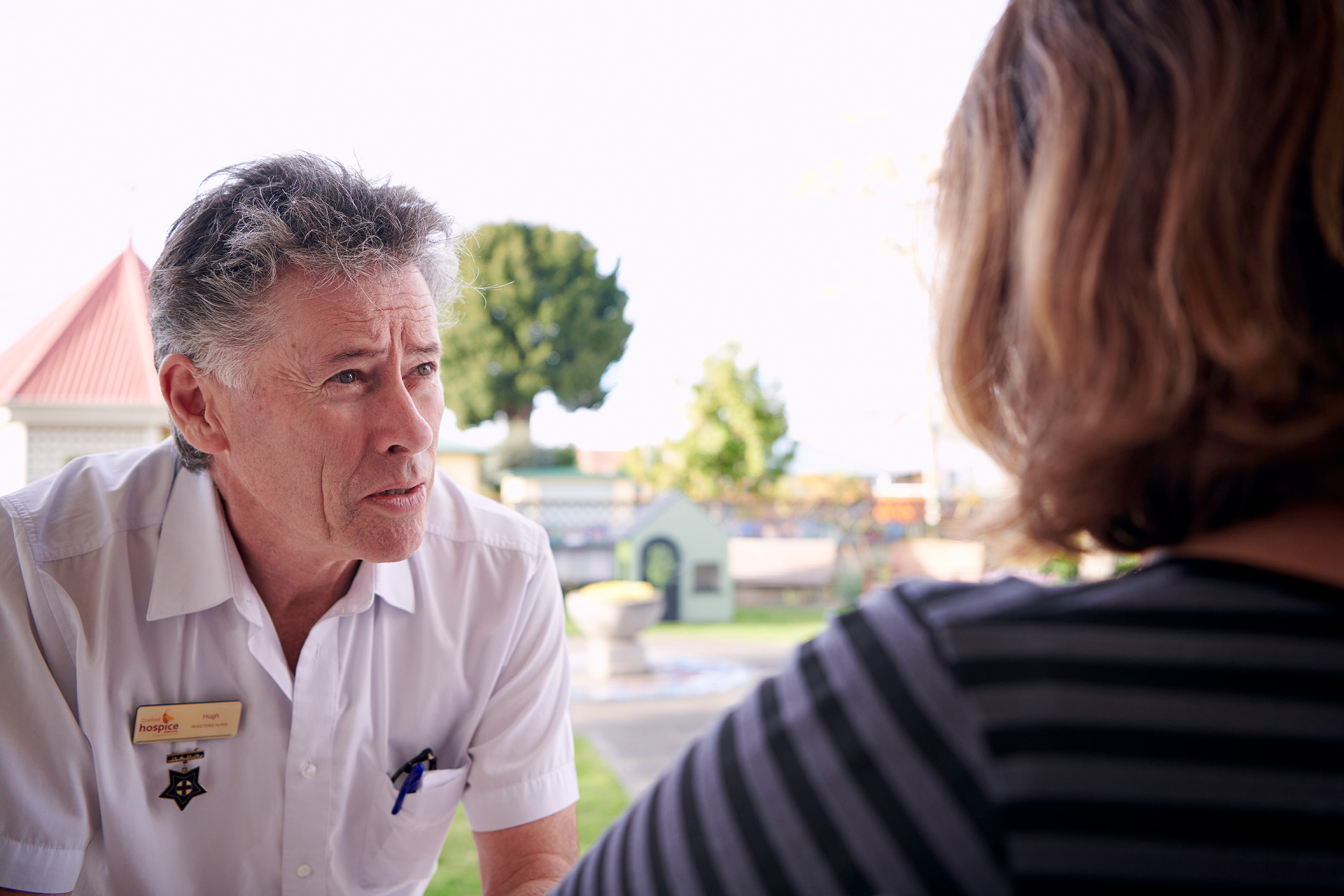Palliative care is the care of people who are dying from active, progressive diseases or other conditions that are not responsive to curative treatment.
Palliative care embraces the physical, social, emotional and spiritual elements of wellbeing – tinana, whānau, hinengaro and wairua – and enhances a person’s quality of life while they are dying. Palliative care also supports the bereaved family and whānau.
Palliative care aims:
- to achieve the best possible quality of life for patients and their families
- to understand and address patients’ physical, psychological, social and spiritual needs
- to be applicable from early on in the course of the illness
The World Health Organisation defines palliative care as:
“An approach that improves the quality of life of patients and their families facing the problems associated with a life-threatening illness, through the prevention and relief of suffering by means of early identification and impeccable assessment and treatment of pain and other problems, physical, psychosocial and spiritual.”
Palliative care:
- provides relief from pain and other distressing symptoms
- affirms life and regards dying as a normal process
- intends neither to hasten or postpone death
- integrates the psychological and spiritual aspects of patient care
- provides support to help patients live as actively as possible
- provides support to the family during the patient’s illness and in their own bereavement
- uses a multidisciplinary team approach
- enhance quality of life and influences the course of illness
- is applicable early in the course of illness alongside therapies that are intended to prolong life (e.g. chemotherapy, radiotherapy) and diagnostic investigations
Who provides palliative care?
Palliative care is delivered by both primary palliative care and specialist palliative care providers that should work together as one team.
Primary palliative care (PPC) refers to care provided by general practices, Māori health providers, allied health teams, district nurses, aged residential care staff, general hospital ward staff as well as disease specific teams e.g. oncology, respiratory, renal and cardiac teams. The care provided is an integral part of usual clinical practice. Primary palliative care providers assess and refer people to specialist palliative care services when the needs of the person exceed the capability of the primary palliative care provider.
Specialist palliative care (SPC) is palliative care provided by those who have undergone specific training or accreditation in palliative care/medicine, working in the context of a multidisciplinary team of palliative care health professionals.
Cranford Hospice is the specialist palliative care provider for Hawke’s Bay.
